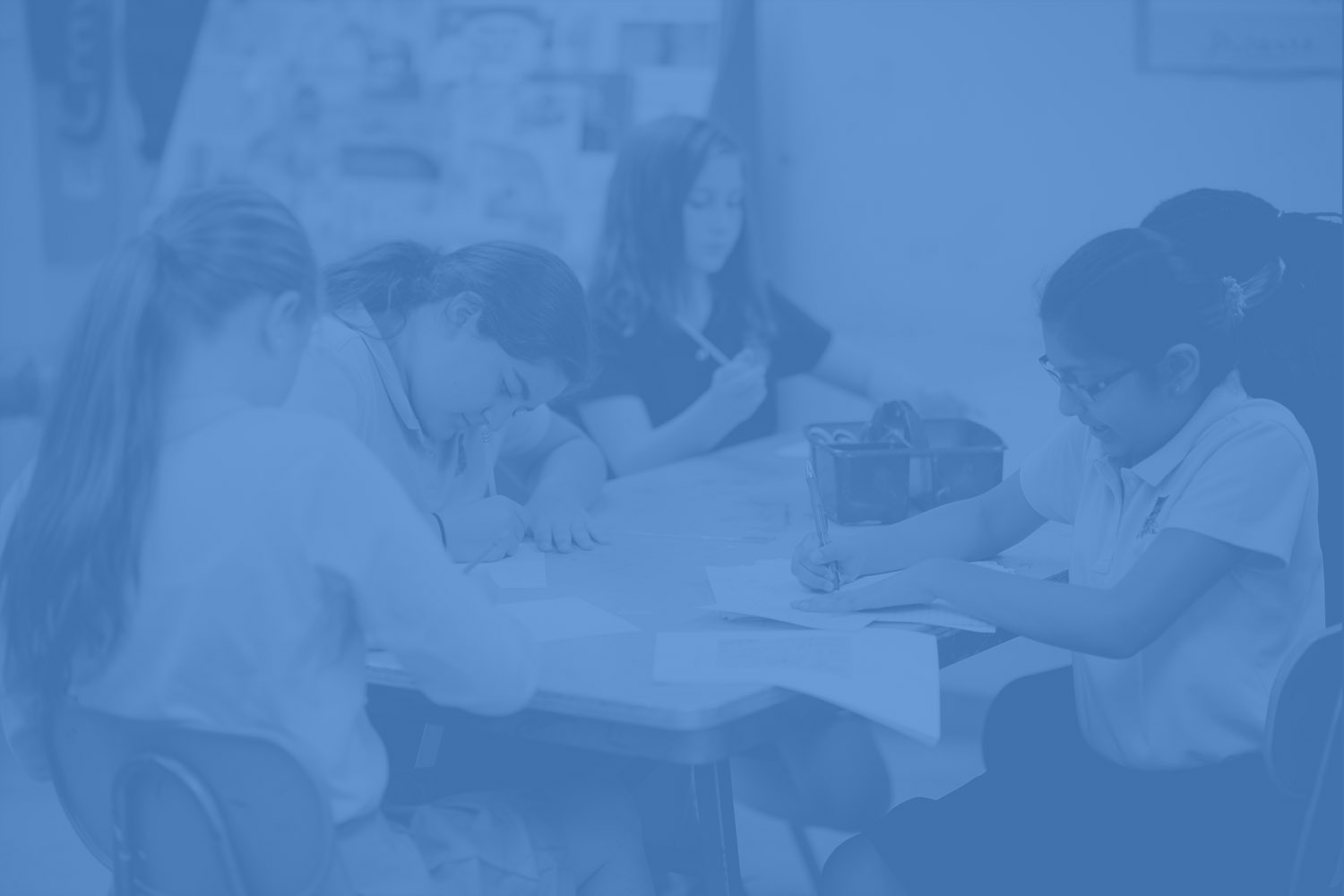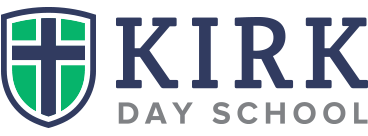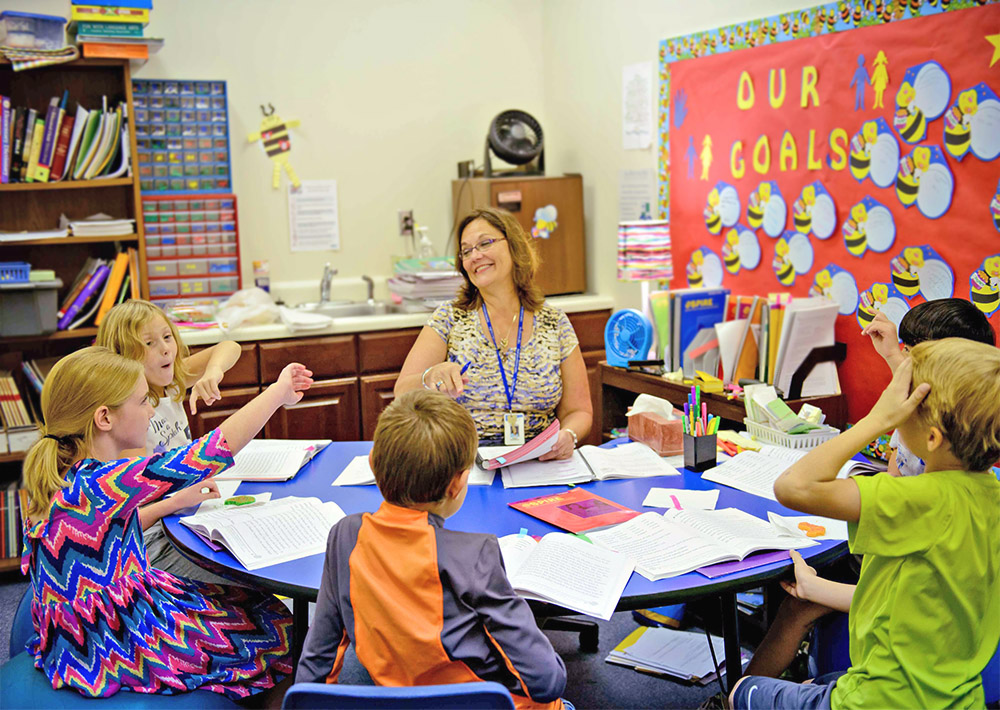
The Educational Support Services (ESS) were created in 1995 to provide assistance for teachers, students and parents to encourage students to achieve their God-designed potential to the highest academic level and their fullest capabilities.
Supports may be available to students identified with unique learning challenges, including mild to moderate learning disabilities, attentional and sensory deficits, as well as the academically talented. Faculty highly-trained and experienced in special education provide a wide variety of strategies and resources known to utilize and enhance the student's strengths while addressing academic, physical and socio-emotional needs. Direct services are available through three levels of support: consult, resource rooms and intensive classrooms.
In addition to the direct services for students, the Educational Support Services also provides ongoing assistance for faculty and families. Kirk Day School welcomes special speakers and opportunities for professional development from around the nation. An extensive referral service and transition program are available to assist parents.
22:6 Support
22:6 Support offers consultation services to assist classroom teachers and parents in developing modifications or accommodations in instruction and curriculum for students demonstrating mild learning deficits or superior academic potential. All instruction is carried out in the general education classroom. Students may be eligible for consult services through 22:6 Support without an individually-administered educational evaluation, however an Individualized Support Plan (ISP) may be developed for students with formal testing. Educational Support Services work in cooperation with the classroom teacher and parents, as well as other professionals where appropriate.
Examples of 22:6 Support:
Perform classroom visits and observations
Suggest specific instructional strategies
Modify task formats
Provide sensory tools (e.g., alternative seating, tactile “fidgets,” sensory breaks)
Develop behavioral strategies and interventions
Proverbs 22:6
“Train up a child in the way he should go; even when he is old he will not depart from it.”
Resource Program
The Early Childhood Resource Program provides screening, preventative and early intervention for students who exhibit potential learning needs in preschool through kindergarten.
The Elementary Resource Program in grades one through six is designed to serve students with mild deficits in academic skills, most notably reading. The resource teacher assesses educational needs and provides support in designing and implementing instructional strategies and interventions intended to remediate areas of academic need. The S.P.I.R.E. (Specialized Program for Individualized Reading Excellence) is used to supplement classroom instruction or provide an alternative approach through small groups. Students may be eligible for resource services without an individually-administered educational evaluation, however an Individualized Support Plan (ISP) may be developed for students with formal testing. The resource teachers work in cooperation with the classroom teacher and parents, as well as other professionals where appropriate.
Intensive Classrooms
Three intensive classroom programs are available to assist students who benefit from more individualized instruction due to moderate learning needs. The 1st/2nd grade, 3rd/4th grade, and 5th/6th grade classes are limited in size to ensure a smaller student-teacher ratio. Each class is led by an experienced special education teacher and a full-time teaching assistant. Multisensory remedial and modified instruction is provided in all age-appropriate subjects. Students receive explicit intervention in organization, study, and social skills. A personal understanding of unique learning differences and self-advocacy skills is also emphasized. An individually-administered educational evaluation is required for enrollment in the intensive program and an Individualized Education Plan (IEP) is developed for each student.
A variety of multisensory, highly-structured and sequential programs are used to meet our students’ varied academic needs. The following is a partial list of the published programs utilized in the intensive classrooms:
S.P.I.R.E. Reading (Orton-Gillingham approach)
Saxon Math (incremental)
Touch Math
Handwriting without Tears
Step Up to Writing
Easy Grammar
Participation within the general KDS program is encouraged for all students to the extent deemed appropriate, with recommendation of the IEP team (including parents, classroom teacher, support staff, other professionals, and student, when appropriate). This includes all nonacademic and extracurricular activities.
Speech and Language Therapy
Educational Support Services does not currently provide speech and language therapy through the KDS faculty. However, KDS does work with several independent ASHA certified speech/language pathologists to arrange screenings and direct therapy for students identified with speech and language disorders. Payment is arranged directly through the individual therapist and not included in KDS tuition. KDS works with both parents and therapists to provide room for student therapy sessions during the school day as space allows.
Related Therapy
Educational Support Services does not currently provide occupational therapy through KDS faculty. However, KDS does work with parents to provide room for private therapists to work with students during the school day as space allows. Therapy is also available at no charge through the S.N.A.P. after-school program with the Special School District of St. Louis County. ESS offers extensive sensory support to accommodate individualized needs, in addition to referral assistance for parents seeking therapeutic screenings, evaluations and contract services.
Eligibility
Educational Support Services are available to students who possess cognitive abilities within the average to above average range and have a primary educational need in the areas of learning disabilities, language disorders, attention or sensory deficits, or superior achievement potential as demonstrated through an individually-administered educational evaluation.
Application Process
Students must be accepted into KDS through the regular enrollment process. Copies of all previous academic information and the most recent educational (and related) evaluations must be reviewed by the Admission Committee. Application may be made at any time, however, early application is advised, due to limited enrollment in the program. Current KDS students are given first consideration, and new students will be accepted as space is available.
Ready to learn more?
We'd love to give you a campus tour or a quick look into our classrooms.


